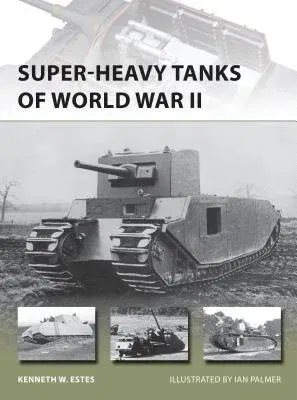This title explores the conception and design of a range of enormous and
powerful tanks that came to be designated as 'super-heavy'. The
fascinating super-heavy tanks of World War II were heirs to the siege
machine tradition - a means of breaking the deadlock of ground combat.
As a class of fighting vehicle, they began with the World War I concept
of the search for a "breakthrough" tank, designed to cross enemy lines.
It is not surprising that the breakthrough tank projects of the period
prior to World War II took place in the armies that suffered the most
casualties of the Great War (Russia, France, Germany). All of the
principal Axis and Allied nations eventually initiated super-heavy
development projects, with increasingly heavy armor and armament.
Much as the casualties of World War I prompted the original breakthrough
tank developments, as Germany found itself on the defensive, with
diminishing operational prospects and an increasingly desperate
leadership, so too did its focus turn to the super-heavy tanks that
could turn the tide back in their favor. Although only a small number of
super-heavy tanks were built, much less saw active service, their
impressive appearance and specifications - not to mention the
possibilities of what might have been - have captured the interest of
AFV enthusiasts, historians and military personnel. This illustrated and
detailed study explores and compares these designs in unprecedented
depth.

